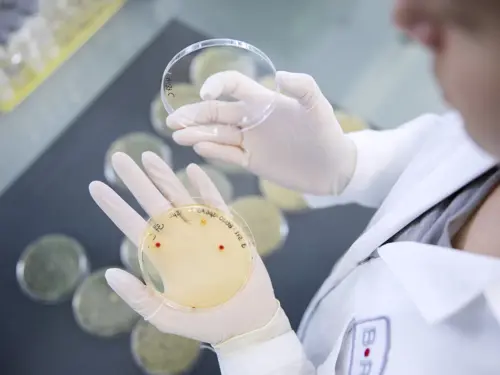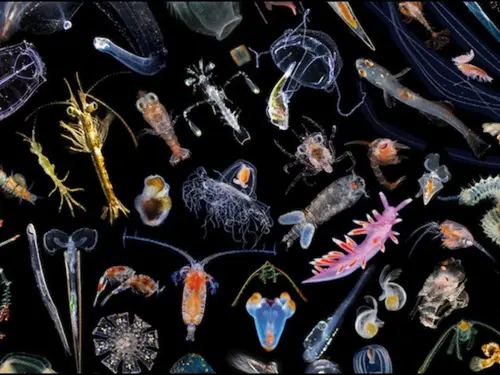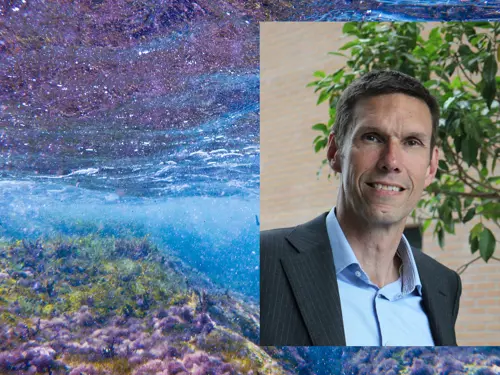
Kursinnsikt
The most common animal in the world smells like danger
Chemicals emitted by copepods could reveal secrets about the ocean.
“The organisms in the ocean have a chemical language that we have just begun to understand”, Erik Selander says.
He describes himself as a combination of a seabum and a science geek. But officially, Selander is a marine scientist at the University of Gothenburg, with plankton chemical ecology as his field of expertise.
Chemical ecology is like a secret code language in nature. Organisms communicate with each other and perceive the world through hormones, pheromones and other “signals”. Think of it as a musical performance of chemical interactions: The right mix creates harmony, while the wrong one causes chaos.
“I've always been intrigued by how small amounts of a substance can change the game”, the Swede adds.
As a PhD student, Selander started to do research on chemical interactions in the ocean. What he discovered is indeed a game changer.
But first, let's talk a little bit about copepods.
BIOPROSP is the international biennial scientific conference on marine biotechnology. We aim to translate basic research into applied research with industrial application.
Bad news for copepods – good news for science
Life as a copepod isn't always easy. The tiny, crayfish-looking sea creatures grow up faster when they are scared, as they struggle near the bottom of the food chain – relying on single-celled organisms like phytoplankton to survive.
But copepods are not exactly stealthy hunters.
“We discovered that copepods produce chemical alarm signals that warn phytoplankton about their presence”, Selander says.
The chemical alarm signals are called copepodamides.
When danger lurks in the form of hungry copepods, phytoplankton sense their “scent” and unleash their defensive mechanisms. Some produce toxins, others change their size or swimming behavior.
Bad news for copepods. But good news for science!
The most common animal in the world
“There’s still a lot we don’t know about microorganisms in the ocean”, Selander adds.
Copepods are by far the most common animal in the world: In fact, if you put every copepod in the ocean next to each other, they would stretch to the moon and back 87 million times.
Phytoplankton, on the other hand, collectively account for the same amount of primary production as all land-based plants combined and produce a large portion of the Earth’s oxygen.
Safe to say, even if these little organisms are very small, they play a large role in maintaining the health and balance of the ocean and its inhabitants. Understanding more about these tiny creatures can help us better manage and protect our ocean resources, not to mention the well-being of the planet.
But the discovery of copepodamides can also be used for more practical purposes.
What is BIOPROSP? The conference is held every two years with a focus on the exploitation of biotechnology in marine environments.
“A very useful tool in plankton ecology”
Toxic algae blooms are a major problem for aquaculture, fish and shellfish consumers.
By subtly manipulating the characteristics of algae through copepodamides, Selander and his team of researchers can conduct experiments that reveal the function, costs and benefits of various traits in the plankton community.
“Why are some algae highly toxic? What are the gene codes for certain traits? This is a very useful tool in plankton ecology. The project is driven by curiosity, but has a lot of practical applications. To see how extremely low levels of chemicals can completely change the rules in the world’s largest ecosystem – the free waters – is quite staggering,” he says.
“It’s also a privilege to live a curious life and explore the many amazing and still unknown interactions taking place between our co-travelers on the planet”.
Do you want to learn more about chemical alarm signals in marine plankton? Listen to Erik Selander’s talk at BIOPROPS 15th of March at 12:30. Here you can read more about BIOPROSP.



